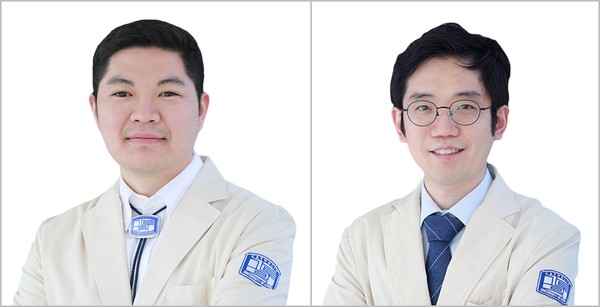A research team at St. Mary's Hospital has discovered that T cell, which causes autoimmune liver disease, appears after a liver biopsy on patients who received the Covid-19 vaccine.

The research, conducted by Professors Sung Pil-soo at Seoul St. Mary's Hospital and Lee Sun-kyu at Incheon St. Mary's Hospital, supports the research result by research at Germany's University Medical Center Freiburg in April that "specific CD8+ T cells induced by Covid-19 vaccination can cause liver damage, which can cause autoimmune liver disease."
The St. Mary's Hospital research is the world's first to report a hepatic overlap syndrome, in which autoimmune hepatitis and primary biliary cholangitis co-occur after Covid-19 vaccination.
According to Professor Sung, the patient was a 57-year-old woman with no history of taking drugs for underlying diseases, alcohol, or liver disease. Still, she was referred to Seoul St. Mary's Hospital for general weakness.
The patient visited the hospital two weeks after receiving the first dose of the vaccine as she felt tired and weak in general. However, an initial physical examination showed that everything was normal. However, as a result of a blood test performed at the next visit, the hospital confirmed that the patient's liver scores related to the diagnosis of liver disease were elevated.
The team tested to determine the cause and confirmed that the results of hepatitis A, B, C, and E and viral hepatitis, such as cytomegalovirus and herpes simplex virus type 1 and 2, were negative. There were no specific findings in liver ultrasound.
In contrast, the autoantibody test showed positive antinuclear antibody and anti-mitochondrial antibodies, confirming the high possibility of autoimmune liver disease, including hepatic overlap syndrome.
Therefore, the team performed a liver tissue biopsy for diagnosis and confirmed that T cells were concentrated in the portal vein, causing infiltration and necrosis of the liver tissue.
The team also observed interfacial hepatitis and non-purulent cholangitis, in which plasma cell infiltration, fragmentary necrosis, and inflammation and necrosis of the portal vein were extended to the periphery of the portal vein.
In conclusion, the research team confirmed that the patient had hepatic overlap syndrome.
Combining these findings, the team treated the patient with high-dose ursodeoxycholic acid (UDCA), and the patient recovered back to normal within two weeks.
"This study clarifies the mechanism that can cause liver damage and liver function abnormalities due to immune response after vaccination." Professor Lee said. "It is also important to identify and treat such symptoms through detailed questionnaires and examinations during patient treatment."
Professor Sung also said, "This paper is the first report on hepatic overlap syndrome after vaccination, and careful observation and confirmation of immune response and liver disease is required."
Sung added that his team would continue to study such liver diseases to help patients, Sung added.
Journal of Hepatology published the result of the research.

